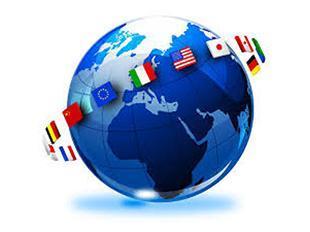Export of goods to Asian and Arab countries
 With our country's accession to the European Union, the issue of domestic exporters who dealt with foreign sales of all kinds of goods improved significantly. The opening of previously closed markets allowed for a simpler, safer and more optimal economic exchange between our country and Western countries. The sales market has also changed, as countries that have so far rarely bought Polish goods due to confusing customs procedures, began to buy them massively.
With our country's accession to the European Union, the issue of domestic exporters who dealt with foreign sales of all kinds of goods improved significantly. The opening of previously closed markets allowed for a simpler, safer and more optimal economic exchange between our country and Western countries. The sales market has also changed, as countries that have so far rarely bought Polish goods due to confusing customs procedures, began to buy them massively.
Today, Rzeczpospolita is one of the leading exporters of such products as cereals, meat and fruit, we are the leader in the export of wooden furniture, especially from small furniture companies, but also in the export of ships - including yachts. We also have a lot of room to show off in such areas as the export of shoes, clothes, especially children's clothing and cosmetics. Still, Polish breeders of pigs and cows, farmers selling barley and mushrooms, and fruit growers dealing with apple orchards still have the most say. When considering what to export from Poland in order to obtain the highest possible revenues, one should, however, reach much further than the Western European market. Eastern markets have enormous potential all the time: exports to Russia and the Middle Kingdom account for almost one third of all our exports in 2013-2014, despite the embargo imposed by the Russians.
Huge demand for our products is recorded in Asian countries and Arabia, where huge amounts of Polish meat are exported and, which is worth considering, Polish fruit, including apples, wild strawberries and blueberries, which in those regions are considered quite a sensation.
The great popularity of Polish food and industrial products should be sought especially in the experience of domestic exporters who can find niche eastern markets and take them over quickly. They analyze what to export at a given moment and what things can still be kept in warehouses, waiting for a greater demand from a foreign recipient.
